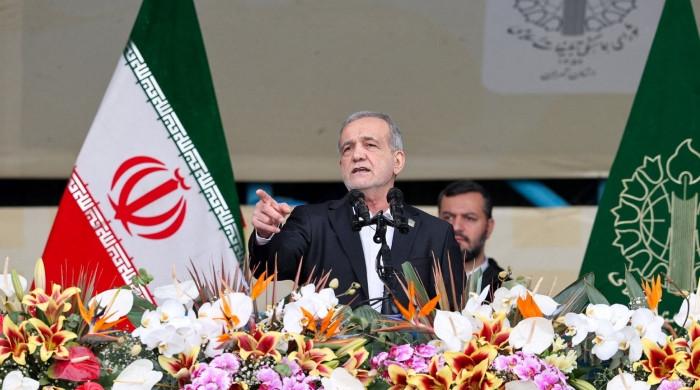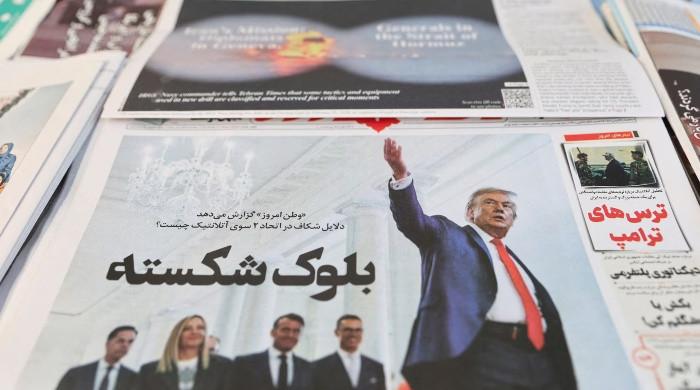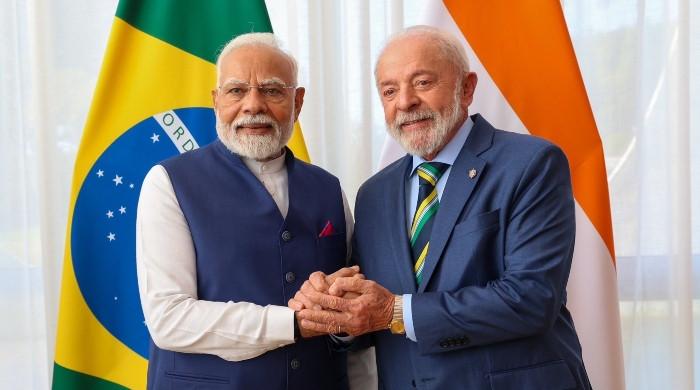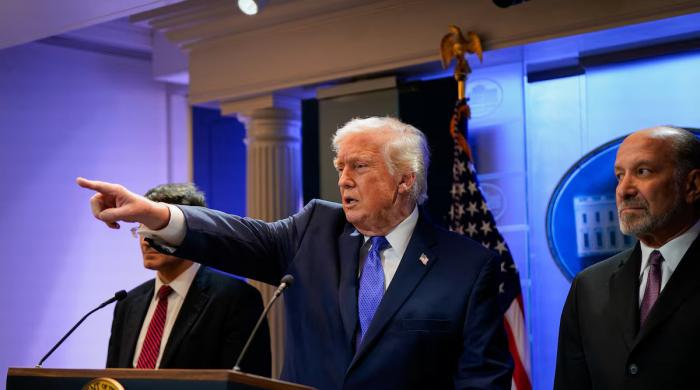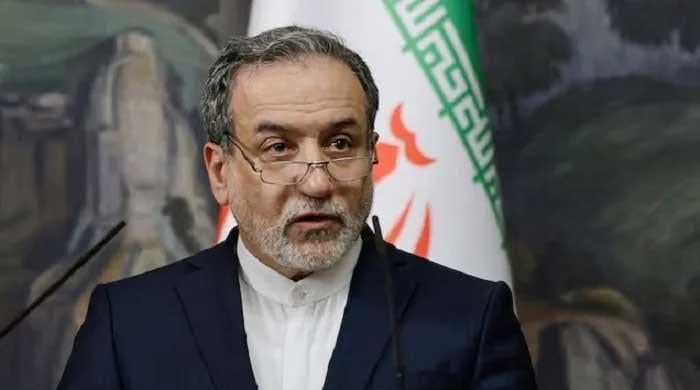World call for stopping violence against women and legislation to protect them
It is everyone's responsibility to keep the commitment to prevent, openly reject, and condemn all acts of violence against women and girls
November 26, 2019
BRUSSELS: Over 10,000 women marched through the streets of the Belgian capital, demanding strong legislation against gender-based violence (GBV) and prevent all sorts of discrimination against women on the International Day for the Elimination of Violence against Women (IDEVAW).
In Europe, particularly, one of every three women faces violence and a number of young European women of Pakistani origin are murdered for the so-called honour, while hundreds of others face a brutal end to their lives for similar reason in Pakistan.
Marching along with demonstrators, Maria Arena — a socialist member of the European Parliament (EP) and the chair of its Subcommittee on Human Righs — spoke to Geo News, saying all countries, particularly Pakistan, India, Afghanistan, the Democratic Republic of Congo, and Somalia must follow the Istanbul Convention.
The Istanbul Convention — or the Council of Europe Convention — works on preventing and combating violence against women and domestic violence.
Young demonstrators of Algerian origin said violence had many forms and shades — the highest being physical — but there were other as well, including forced marriage, psychological violence, domestic violence, workplace harassment, and discrimination in employment. This, she added, must end through strong legislation.
The women’s rights movement started in the beginning of the 20th century from Italy and gained momentum through the time. It took more than 100 years for the movement to reach its present form.
Although women in the subcontinent had participated in the movement of Pakistan’s creation, it was limited to the bourgeoisie circle. The mass movement for women rights in Pakistan, on the other hand, began with a political and democratic struggle against Gen Zia ul Haq's martial law and the imposition of Hudood Ordinance against women.
Demonstration began at Brussels' central station and continued on through the city. At the start of the protest, the organisers read out the names of all those women who were killed through some sort of violence. One hundred women were killed in Belgium in the past two years and 21 in 2019.
On the eve of International Day for the Elimination of Violence against Women, a senior representative of European Union (EU) on Foreign Policy and Security said: “Violence against women and girls is violence against the whole humankind and it should have no place in Europe or elsewhere in the world.
"But we all know that despite our commitment, we are still far from meeting this challenge," the representative added.
Violence against women (VAW) may happen anywhere and there was no safe place — not even home sometimes. Women are targeted at their workplace, in schools and universities, on the street, in displacement and migration, and — increasingly — online through cyber violence, hate speech, online harassment, and revenge porn.
The scale of the problem stays alarming.
One of every three women in Europe has experienced physical and/or sexual violence. Nearly all victims of sex trafficking within EU are women and girls.
In developing countries, one of every three girls is married before the age of 18. There are at least 200 million women and girls who have undergone female genital mutilation (FGM), which is still performed in around 30 countries, including Pakistan.
It is, therefore, everyone's responsibility to keep the commitment to prevent, openly reject, and condemn all acts of violence against women and girls.
In one of its reports, Amnesty International mentioned that the inclusion of economic discrimination as a form of violence is of particular note: "Although women comprise 70 percent of the world’s poor (which is widely acknowledged to be violation of human rights and dignity), it is not always remembered as a form of violence.
"However, many manifestations violence against women can be traced to roots in poverty, such as the tradition of forced marriage by families seeking to alleviate debt (widely practices in Afghanistan and Pakistan), the sale of girl children into sex slavery (common in India), and maternal mortality rates associated with lack of access to healthcare.”





